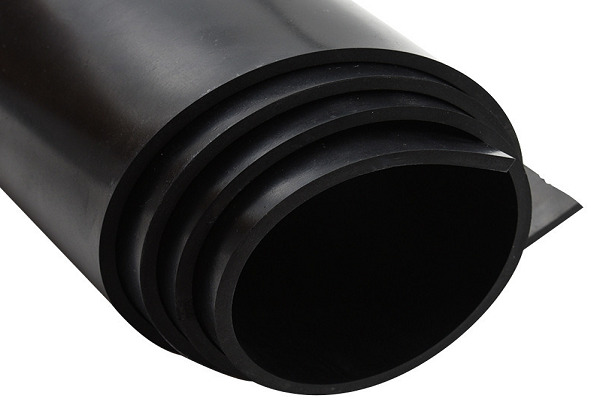
The density of butyl rubber sheets is an important indicator for evaluating their performance and application. Understanding the density of butyl rubber sheets not only helps in selecting the appropriate material but also in predicting their behavior in different environments. This article will delve into the relevant knowledge about the density of butyl rubber sheets, including its definition, calculation methods, and various factors that affect it.
Butyl rubber is a synthetic rubber known for its excellent air tightness and heat resistance, and is widely used in various industrial fields. Butyl rubber sheets are sheet products made from this material and are commonly used in the manufacture of tire inner linings, seals, and sound insulation materials, etc. As a fundamental physical property of a substance, density is also of great significance for butyl rubber sheets.
Density refers to the mass of a substance per unit volume, usually expressed in grams per cubic centimeter (g/cm³) or kilograms per cubic meter (kg/m³). In practical applications, the density differences of different materials can affect their performance in specific environments. For example, materials with higher density generally have greater strength and wear resistance, but they may be heavier and less convenient to handle and install.
The density of butyl rubber sheets typically ranges from 1.3 to 2.0 g/cm³.
This range can vary depending on the specific formula and production process. Generally, the higher the density, the greater the hardness and strength of the rubber sheet. However, excessively high density may cause the material to become brittle and reduce its flexibility. Therefore, when choosing butyl rubber sheets, it is necessary to consider the balance between density and other performance indicators.

>send emails to sales@jingdongrubber.com,get a quote now
The density of butyl rubber sheets can be calculated by measuring their mass and volume.
The specific method is to first weigh a piece of butyl rubber sheet with a known volume, and then use the formula ρ = m/V, where ρ represents density, m represents mass, and V represents volume, to calculate the density value. This method is simple and intuitive and is applicable in both laboratories and production sites.
There are many factors that affect the density of butyl rubber sheets, mainly including the selection of raw materials, the use of additives, and the production process.
Different rubber raw materials, such as natural rubber and synthetic rubber, have different molecular structures and densities. For example, natural rubber usually has a lower density, while some synthetic rubbers have a higher density. In addition, to improve the performance of rubber sheets, various additives such as fillers, plasticizers, and vulcanizing agents are often added. These additives have different effects on density; some increase it, while others decrease it.
Temperature, pressure, and mixing time during the production process also have a significant impact on the density of butyl rubber sheets.
Appropriate process parameters can ensure a uniform internal structure and stable density of the rubber sheet. If the process is not properly controlled, it may lead to density fluctuations, thereby affecting the consistency and reliability of the product. For example, rubber sheets produced under high temperature and high pressure conditions may have a higher density than those produced under normal temperature and pressure conditions.
The aging process is also a key factor affecting the density of butyl rubber sheets.
As the usage time increases, butyl rubber undergoes cross-linking reactions, causing changes in its density. Studies have shown that the cross-linking density of butyl rubber first increases and then decreases with the extension of aging time, and the change is more significant with the increase of aging temperature.
This means that butyl rubber sheets exposed to high-temperature environments for a long time may experience significant changes in density, thereby affecting their mechanical properties and service life.
Jingdong Rubber Co., Ltd. is a professional rubber sheet manufacturer, producing silicone rubber sheet, natural rubber sheet, fluorine rubber sheet, neoprene rubber sheet, insulating rubber sheet,EPDM rubber sheets, oil-resistant rubber sheets, anti-static rubber sheets, flame-retardant rubber sheets, conductive rubber sheets, anti-slip rubber sheets, and cowshed mats, etc. with 40 years of industry experience, are popular both at home and abroad. If you need any of our products,please send emails to sales@jingdongrubber.com.

